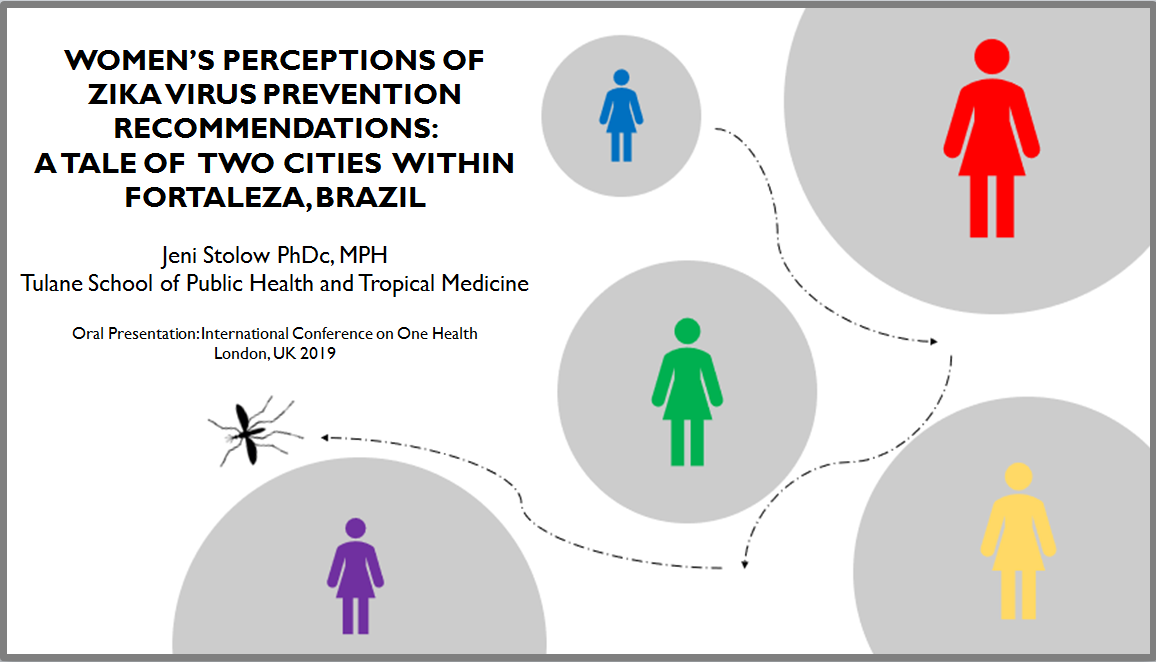Changemaker Catalyst Award recipient Jeni Stolow traveled to the International Conference on One Health in Summer 2019 to present a portion of her dissertation about Zika virus in Brazil. Jeni is a doctoral candidate in the Global Community Health and Behavioral Sciences Department of the Tulane School of Public Health and Tropical Medicine.
THE OUTBREAK
One of the clinics Jeni worked in during the outbreak in Fortaleza, Brazil
Throughout the Zika virus epidemic, there was a large gap in the international effort put toward connecting, communicating, and collaborating with the communities being most impacted in Brazil. A lot of medical, epidemiological, and statistical studies popped up throughout the outbreak – yet few researchers were taking the time to speak with women about their knowledge, experiences, perceptions, fear, and understanding of the epidemic. My dissertation worked toward closing that gap and promoting more epidemic responses to utilize social science (interviews, focus groups, speaking with populations) to mitigate potential harm and connect with those populations we aim to serve.
I went to this conference to learn from others who had responded to outbreaks and to share my experiences and ideas. Mainly, I went to use my presentation as a platform to address the benefit of addressing sociocultural factors when designing an epidemic/outbreak response. I believe innovative approaches to outbreaks need to be suggested at such conferences because current approaches to outbreaks such as Ebola, Zika, Dengue, and Lassa fever are not working. Cycles of outbreaks continue to hit hardest those populations that are often systematically neglected and forgotten. I want to be the changemaker needed in public health and act as a catalyst for changing the antiquated, recycled, condescending approaches to outbreaks that neglect the cultural context in which they occur.
THE CONFERENCE
Jeni’s conference presentation in London, UK
This conference was an opportunity for me to get out of my comfort zone, share some radical ideas (radical for this academic community), and learn from the biomedical experts in my field. This was an incredibly intimidating experience as my research is non-typical and often seen as lesser by those in the biomedical field. One of my objectives was to use this conference as an opportunity to understand where this animosity comes from, how to build bridges between disciplines, and how to better collaborate in the future. All of us in this discipline should work together as a team against epidemics. This cannot be done if there is a lack of communication and partnership among efforts.
As anticipated, I was met with hostility during my presentation as many thought my work wasn’t “true science” but pseudoscience lacking rigor, importance, and structure. Although a difficult conversation to navigate, I was able to voice why I felt these approaches were important as someone who had several years of experience both in the field as well as in Brazil. After several of these challenging conversations, slow progress was made as several presentation attendees began to agree with the methods and became my supporters. After the presentation, and in the breakout sessions, many attendees sought me out to ask more about my work and learn about my methods and viewpoints on the social justice lens in outbreak responses. By the end of the conference, I left with dozens of business cards, copious new connections, and many many many lessons learned in networking at the international level.
THE TAKEAWAYS:
This was an intimidating experience but I am so glad I did it! This was an important reminder that being a changemaker can be challenging because you need to be ready to promote your ideas while simultaneously listening to others’ viewpoints. This experience was also a great reminder that using your voice to articulate ideas can start important conversations about moving social change forward. All in all this experience helped me to learn from others, exercise my professional voice, and start building bridges among colleagues. You never know what you can do until you try!


